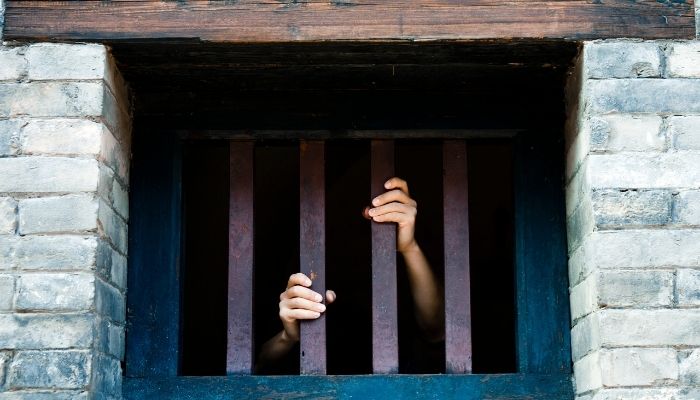PTI kept its promise to help overseas prisoners, but more needs to be done
It is a thing of pride to recall the repatriations facilitated by the current government during this ordeal
December 18, 2021

Still in the grip of the pandemic, 2021 has been a difficult year. Alongside the free population, prisoners too have borne great risks.
Sentenced to a loss of liberty, they have instead served sentences of grave danger – many of them part of the vulnerable population most at risk from the virus. Tightly packed cells, delayed access to vaccines, and low standards of healthcare all contribute to the global prisoner death toll of the pandemic.
Like 2020, this year’s virus also saw the closing of borders. Pakistani prisoners convicted overseas, who may otherwise have come home through diplomatic exchanges, were stuck waiting in overcrowded jails, asking foreign jailors for clues of updated travel dates in languages they didn’t understand.
Although public management was an uphill battle during COVID-19, one area of the PTI manifesto that was honored throughout is the plight of overseas prisoners. While all of us are undeniably aware of the current government’s push to raise remittances, it seems their interest does not wane when it comes to those migrants who are now unable to send anything home to their loved ones. While approximately 9,200 Pakistanis are spending the end of this year in jails across the world, their families yearn not for remitted wages, but for words affirming their survival, and in their heart of hearts, a date of return.
It is a thing of pride to recall the repatriations facilitated by the current government during this ordeal. A massive 1,200 Pakistanis imprisoned in the UAE were brought home in April 2020, and another 41 returned from Sri Lanka in November of the same year. Despite the barriers of closed borders and overworked embassies, this government not only brought back students and workers trapped overseas, but the people most of us forget even in the best of times.
In May 2021, in an impressive feat of diplomacy, Prime Minister Imran Khan returned from a trip to the Kingdom of Saudi Arabia with a signed Prisoner Transfer Agreement. A PTA is a bilateral contract between states which facilitates the transfer of prisoners back to their country of origin. In July and August of 2021, we saw two tranches of Pakistanis return home from the Kingdom. Such is the power of a PTA – instead of a keen government adopting ad-hoc measures to bring citizens home, a legal instrument with definitive standards and implementation channels results in swift and consistent repatriations.
Our government must make efforts to negotiate more PTAs and bring existing ones into implementation. The prime minister’s commitment to prisoners’ rights is evident from the smiling faces and flag-bearing hands of returning prisoners. But it is now time to create an ever-lasting impact on the rights of all overseas prisoners, instead of the lucky subset benefitting from the efforts of determined ministers.
For Pakistani prisoners in Gulf countries, where the vast majority of the 9,200 remaining overseas prisoners will ring in the new year, signed PTAs are a codified recognition of the right to come home.
Moreover, if the current government hopes to keep providing relief to our fellow citizens, it must pass a Consular Protection Policy. Consular services comprise various types of assistance provided by officials to a country to citizens of that country when they are overseas.
All Pakistanis, whether tourist, migrant, or prisoner, are entitled to due process. This duty of the Pakistani government to guarantee due process ‘where ever he may be’ is a fundamental right embedded in Article 4 of our Constitution. In order to uphold the same, the Supreme Court of Pakistan and the Lahore High Court have urged the formation of a comprehensive Consular Protection Policy. Unfortunately, one has not been passed till date.
From the moment that a Pakistani interacts with the legal system of another country, they are disadvantaged in material ways. Cultural barriers cast a hue on each stage of the case being built against them. Translators are seldom provided, and even the ability to call home once in a while is not guaranteed.
Alone and without recourse, it is only through consular services that such a citizen might have a fighting chance. A chance to inform their family of their whereabouts, to make their defense, to retain dignity within the prison system, and eventually, to come home.
As December ends, we will all be reflecting on 2021 and setting intentions for the new year. Today, on International Migrants Day, let us take a moment to think of the imprisoned Pakistanis who have much to reflect on, but no future to plan. Through the signing of more PTAs and the passing of a consular protection framework, this government can pull them out of limbo and place them back on their own soil. Perhaps in 2022, they too can ring in the new year in the arms of their loved ones.
Farrukh is a lawyer working with Justice Project Pakistan. She tweets @sfarrukhsh











